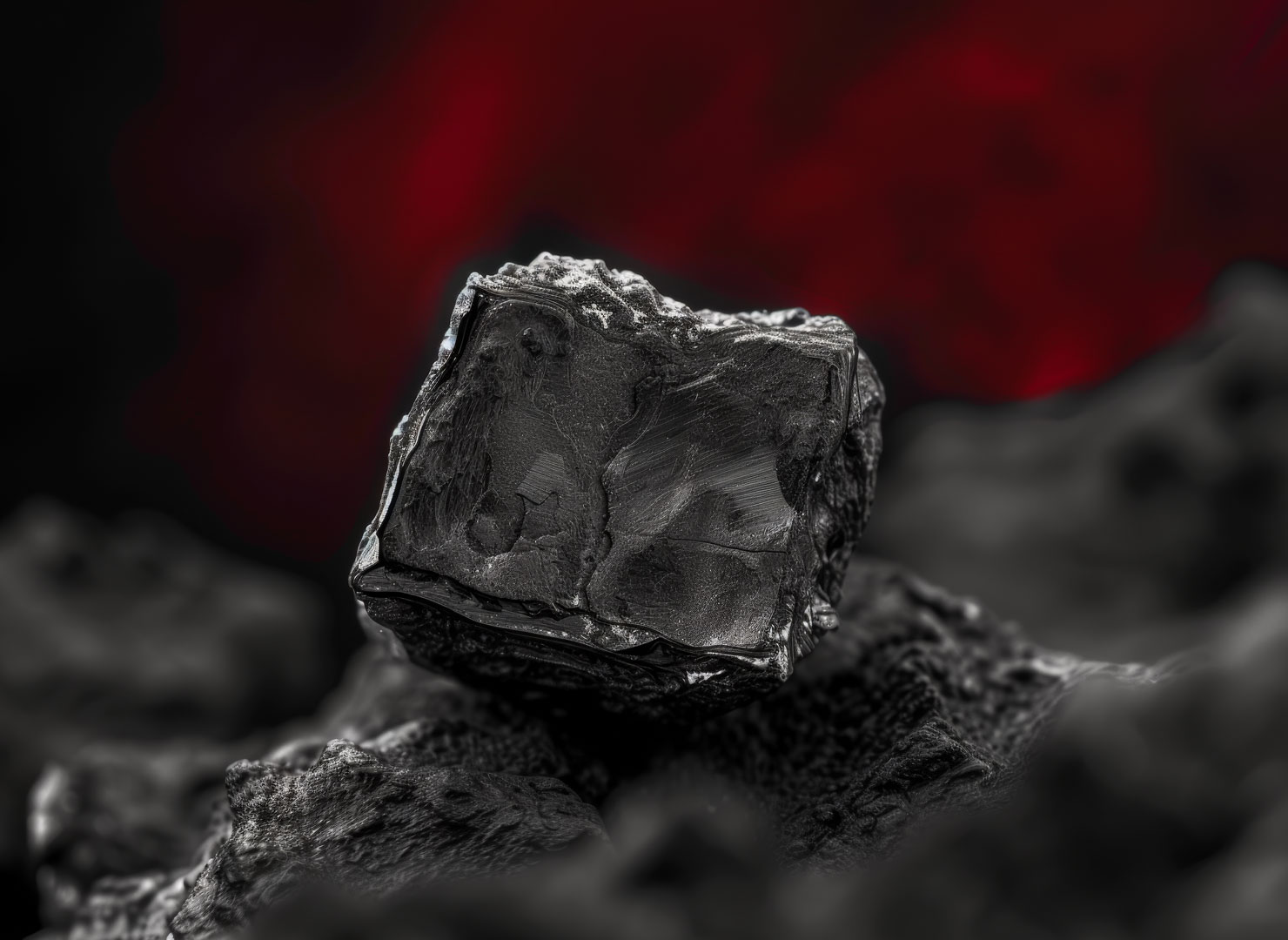The Element Promethium
On this page you can find out more about the rare earth element
Name: Promethium
Symbol: Pm
Ordinal number: 61
Density: 7,22 g/cm3
Melting point: 1.168 °C
Boiling temperature: 2.727 °C
Promethium is one of the lanthanidesA group of 15 elements with chemically very similar properties. in the periodic table.
Introduction
Promethium: The Rarest Rare Earth Element
The discovery of the extremely rare and unstable element promethium in 1945 closed the last gap in the periodic table. Natural deposits worldwide are estimated to be less than one kilogram.

A Warning Against the Nuclear Arms Race
Promethium was discovered as a fission product of uranium in 1945 by the American chemists Lawrence E. Glendenin, Jacob A. Marinsky, and Charles D. Coryell. Other scientists had previously suspected the existence of this element but were not able to isolate it. The element is named after a major figure in Greek mythology, Prometheus, the Titan who brought fire to mankind and thus aroused the wrath of the gods. Naming the element after him was intended as a warning about the nuclear arms race that was beginning at the time.
Main areas of application of Promethium

One of the Discoverers of Promethium
The chemist Lawrence E. Glendenin, who received a major award from the American Chemical Society for his research work, was born in the United States in 1918. Glendenin was part of a group led by Jacob A. Marinsky and Charles D. Coryell that discovered promethium at the Oak Ridge National Laboratory in 1945.
Characteristics
Promethium Forms an Oxide Layer When Exposed to Air
Like all lanthanides, promethium, a silvery-white ductileIf a material is described as ductile, it means the material is permanently malleable. heavy metal, quickly becomes coated with an oxide layer when exposed to air.
Areas of Application
Long Life for Miniature Batteries
Due to its short lifespan and extremely low availability, promethium is used only in tiny quantities in specialized niches. The isotope 147Pm has been tested in miniature batteries with a service life of several years and has been used in space travel and pacemakers, among other things. Promethium is also used in radiometric thickness measurement for industrial purposes and can be an additive for luminous paint for watch displays.

Batteries
Battery storage is essential for the global energy transition. Manufacturers of hybrid vehicles rely on nickel-metal hydride batteries, which contain rare earths. Batteries also power countless electrical devices.
Learn more

Aviation
Metal alloys containing rare earths are used in wings and fuselages to make aircraft lighter. Lighter aircraft use less fuel and have a greater range. However, rare earths are most commonly used in permanent magnets found in auxiliary motors in aircraft electronics and the motors of landing gear.
Learn more

Lighting
Rare earths are used to produce classic fluorescent tubes, modern energy-saving lamps, and LED lights. The raw materials are also used in devices with picture tubes, tablets, and smartphones, where they produce red pixels.
Learn more

Nuclear Power
Nuclear reactors generate energy by splitting atomic nuclei. Nuclear power is currently making a comeback in many countries. This trend could further increase the demand for rare earths, some of which are used in reactor control rods.
Learn more
Deposits
Natural Occurrence Is Estimated at Less Than One Kilogram
Since promethium is a radioactive isotope with a short half-life (the longest known is 17.7 years), it is almost never found in nature. It is formed during the spontaneous fission of uranium and the radioactive decay of 151europium. Natural deposits of promethium are estimated to be less than one kilogram. The element is mainly obtained artificially from the fission products of nuclear power plants.

Supply to Industry Is Considered Safe
Promethium is the rarest of all rare earth elements. It can only be produced artificially in minute quantities. Since it has extremely limited fields of application, its supply is not currently classified as critical.
Raw Materials Trading Industrial Customers
TRADIUM trades in all industrially relevant rare earth oxides. Choose from a wide range of specifications and take advantage of the option to reserve batches for the long term.
Purchase of Physical Assets for Private Customers
Benefit as a private customer from the exciting market for rare earths as a physical asset. You can find out here what opportunities TRADIUM offers and what tax advantages a purchase of raw materials entails.